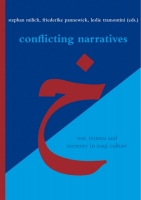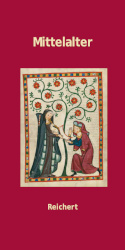Titelsuche
Herausgeber: Milich, Stephan; Pannewick, Friederike; Tramontini, Leslie
Conflicting Narratives: War, Trauma and Memory in Iraqi Culture
Kurze Beschreibung
This volume deals with the Iraqi cultural production under and after Baathist rule, a research field which, in comparison to Iraqi history and politics, has attracted relatively scant scholarly attention. The contributors depict the impact of dictatorship, sanctions, and successive wars on Iraqi culture, analyze the predominant narratives and counter-narratives in Iraqi culture, as well as considering the effect of the demographic shift to exile and diaspora. Further contributions deal with the fragmentation of Iraq’s political culture and artistic representations of diverse identities and historical memories. And last but by no means least, the volume asks how the strategies of those intellectuals who supported and legitimized official politics during the Baathist rule can be approached and studied critically with a view to gaining a better understanding of how official culture functioned.Rezensionen
„It is a fitting conclusion to the three critical sections of the volurne, as it suggests a view of the dialectic of home and exile in respect to the theme of translation across languages and the critical potential such an exchange can make to an understanding of the critical and creative work of Iraqi writers. As Pflitsch notes in respect to Fatah's later novel Onkelehen, for the exiled Iraqi refugee Iraq itself "remains completely alien to him and shows up the limits of his own understanding". It is of course precisely the conflicting cultural horizons of these limits that the volume as a whole situates as a site of researchand creative writing practices.“
Von Norman Saadi Nikro
In: De Gruyter, S. 234-237.
-------------------------------------
„It is of couse precisely the conflicting cultural horizons of these limits that the volume as a whole situates as a site of research and creative writing practices.“
Von Norman Saadi Nikro
In: OLZ 109, (2014), S.234-237.
Reihentext
Diese Reihe stellt innovative Arbeiten zu den nahöstlichen Literaturen in ihren verschiedenen Epochen und Gattungen vor. Sie versteht sich nicht ausschließlich als ein Forum für Orientwissenschaftler, sondern möchte auch Komparatisten, Literaturwissenschaftlern und einer interessierten Öffentlichkeit Einblicke in das breite Spektrum gegenwärtig produzierter und rezipierter Literatur des Nahen Ostens bieten.
Denn die Herausgeberinnen, Autorinnen und Autoren wollen den Titel der Reihe programmatisch verstanden wissen. Sie gehen von einem Begriff der Weltliteratur aus, der die orientalischen Literaturen nicht nur statisch einbegreift, sondern sie in ein Kulturregionen und Nationalsprachen übergreifendes Spannungsfeld stellt, dessen Dynamik erst im interdisziplinären Austausch erfasst werden kann. Sie gehen ferner davon aus, dass Literaturen in vielfacher Weise intertextuell geprägt sind, dass sie Lektüren verschiedenster vorausgehender Texte darstellen und daher erst in ihrem „lokalen historischen Kontext“ ihren Reiz als Ausdruck einer regional geprägten Ästhetik entfalten können. Die Reihe versucht so, einer neuen Sensibilität für mythische, archetypische, aber auch historische Subtexte in der nahöstlichen Literatur Bahn zu brechen, sie aber gleichzeitig als wichtigen Ausdruck einer globalen kulturellen Mobilität sichtbar zu machen.




 Vorwort
Vorwort

 Neuerscheinungen 2023/2024
Neuerscheinungen 2023/2024
 Gesamtverzeichnis 2023/2024
Gesamtverzeichnis 2023/2024
 Katalog Oriental Studies & Linguistics
Katalog Oriental Studies & Linguistics
 Mittelalter
Mittelalter
 Deutsche Inschriften
Deutsche Inschriften
 Musiktherapie
Musiktherapie
 Literaturen im Kontext
Literaturen im Kontext